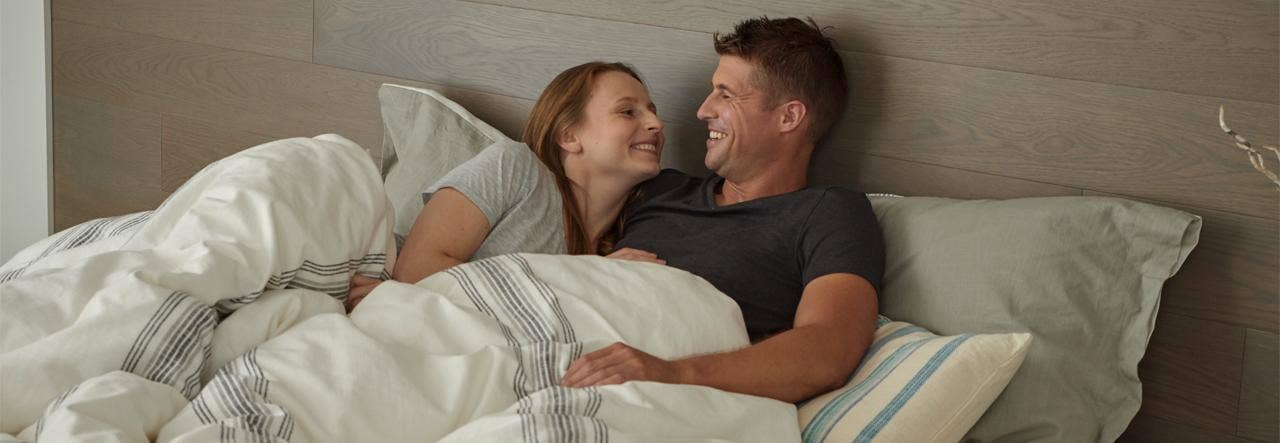You may already know that bedtime routines aren’t just for young children, and that teens and adults also benefit from having a regular rhythm that gets their brain ready for sleep. But if you or your teen are anything like me, sometimes there’s a Grand Canyon size gap between knowing and doing. Worse, sometimes even after closing that gap and finally doing The Thing, it may seem like it doesn’t work after all. It may seem impossible even to figure out why.
When it comes to bedtime routines for adults and teens, that is exactly why some of us give up trying to make it happen or why we think that sleep routines just don't work for us.
But, consider this: it might not be that a bedtime routine won’t work. It could be that what we’re doing in that bedtime routine isn’t working. Because some habits can work against getting our brains ready for sleep, it’s important to avoid any pitfalls that could undermine your whole bedtime effort.
10 Ways You May Be Sabotaging Your Bedtime Routine
The good news is that it’s not rocket science. In fact, many of these sleep routine pitfalls may seem like common sense. Others are well known but annoying or inconvenient … which makes it all the more important to examine your sleepy time habits. Making small changes can add up to a much healthier bedtime routine and more restorative sleep. Take a look at this common mistakes:
1. Not Determining a Real Order
The order of events right before bed is what actually has the greatest impact on how quickly you fall asleep. The first part of the bedtime routine can be a little more flexible but the last 2-3 steps for adults and teens should be the most consistent. Side note: for younger kids, you want to focus on the last 3-5 steps, and it can help to have a bedtime routine checklist so they can choose the order of some steps, such as brushing teeth or putting on pajamas, while the last steps remain the same every time.
2. Starting Your Bedtime Routine Too Late
Work backwards to know when you should start the bedtime routine. Starting too late and not leaving enough time for each part of the routine will either mean a later bedtime and inadequate sleep or stressing about getting it all in and rushing to get in bed. Stress interferes with sleep, so keep things stress-free by starting the routine early.
3. Making Your Sleep Routine Too Complicated
Turning off the lights is a step. Putting on pajamas is a step. Going upstairs/downstairs/down the hall to the room is a step. The final steps in particular can be very simple including lying down in bed and adjusting the covers. The steps themselves may be very simple.
Doing too much applies here, too. Remember, the last few steps should be the same and in the same order but if those steps take too long, you may miss your sleep window and your brain may have trouble getting sleepy.
4. Using Screens Too Close to Bedtime


The blue light from electronic screens interferes with the body’s natural melatonin release and instead releases a wakefulness hormone in the brain that takes at least 20 minutes to begin to dissipate. For your best bedtime routine, avoid screens entirely for an hour before planning to be in bed. If an hour seems impossible, aim for at least 30 minutes. For more on how the light from electronic screens interferes with sleep, see here.
5. Relying on the Wrong Lighting
Speaking of blue light, it’s important to keep in mind that certain types of light wake up our brains while others help our brains to settle. Consider the light in your sleep environment. Using light sources that emit red light, which helps calm the brain and encourages the natural release of melatonin, can make for a more effective bedtime routine. Blue light has the opposite effect. For more on how lighting can impact your sleep, see here, here, and here.
6. Having Too Much Excitement
Reading a murder mystery right before asking your mind to calm and rest might not be very helpful. Even just a little excitement before the bedtime routine can make it difficult to settle. As much as possible, switch to calming activities two hours before lights out so you can avoid the rush of adrenaline and endorphins that make it difficult to sleep.
7. Doing any Activities in Bed


Reading in bed or watching TV in bed seems like a nice relaxing way to unwind and not think about the day. However, it can tell your brain that bed is the space where we don’t sleep. As much as possible, keeping the bed dedicated to sleeping will support a good night’s rest. This goes for the whole day – not just your wind-down time.
8. Thinking It’s All or Nothing
If the bedtime routine gets thrown off or delayed, skipping it entirely won’t do anyone any favors. Instead amend it to shorten each step. If you normally spend 15 minutes journaling to kick off your bedtime routine, try spending just five minutes jotting down a few thoughts. Or, if your shower and skincare routine is normally 30 minutes, tighten it up to 15. Going through the steps in less time is better than not doing them at all.


9. Ditching on the Weekends
When there isn’t school or work to wake up for, it can be tempting to play hooky with your bedtime routine. Some flexibility on the weekends is OK, but too much can cause anxiety and throw the whole strategy off … taking you days to get back on track. Stick to the routine on the weekends so you’re not always playing catch-up.
10. Giving Up Too Soon
It usually takes 3-5 days to change sleep habits, sometimes as long as 10 days. Once a bedtime routine is decided upon, commit to at least three days before changing anything and stick to it for a good 10 days before giving up. A routine can make a big difference relatively quickly but you’ve got to stick with it long enough to find out what that looks like for you.
If you’ve been struggling with chronic overtiredness, it can take even longer to see the full effects of a healthy bedtime routine. Stick to the routine and don’t change things around too much, particularly those final steps before your head hits the pillow. Create the bedtime routine that makes the most sense for you. Just remember to avoid some of these common bedtime routine pitfalls and you’ll have a better chance at the success – and quality sleep – you crave.
 BABY
BABY  KIDS
KIDS  ADULT
ADULT  LEARN
LEARN  STORES
STORES 
